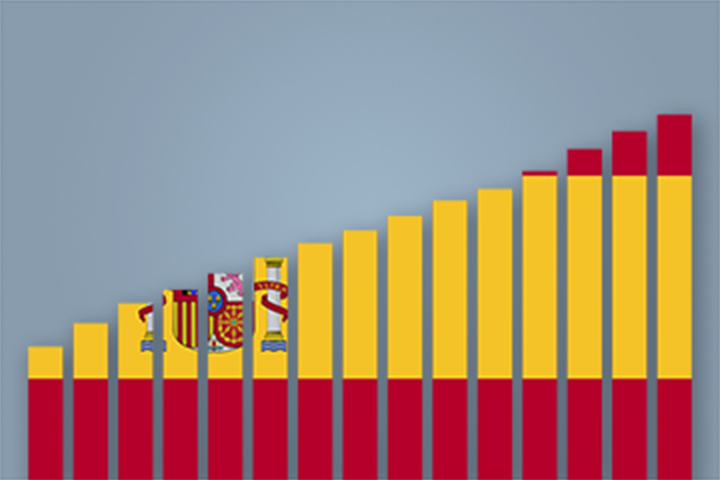Buying or renting after you turn 50: which option is best for your future plans?

Keytrade Bank
keytradebank.be
July 31, 2025
3 minutes to read
Are you over 50? If so, you might well be secretly dreaming of a home life without any chores to take up your precious time – or simply enjoying some peace on your veranda. The question is, do you buy the dream, or do you rent it?
Entering your 50s or 60s comes with some major changes. If you have children, this is around the time they start leaving the nest. Retirement – previously a distant reality – is now something you have to think about. And your living situation takes on a new dimension. For example, you may find yourself in a house that was large enough for a family, but is too big for just one or two people. Alternatively, you may have been renting for years and now you're contemplating whether to buy a place of your own before retiring. This point in your life is pivotal, because the decisions you make now will have an impact on your finances and quality of life later on.
1. In defence of buying: who would (still) find it worthwhile to own their own home?
Buying or continuing to own a home can be a good option if you are financially buoyant and you think you'd be happy where you are in the long term. Here are a few reasons why buying is an attractive option:
- Stability into old age: As a homeowner, you can rest assured that you can continue to live in your home for as long as you want. There is no need to worry that a rental contract will end or that the owner will sell the house out from under you. This stability is a major comfort to many people later in life.
- Investing and inheritance: Owning your own home is a way of building capital. Property can increase in value well after you turn 50. This potential accumulated value is something you can leverage yourself (if you choose to sell the property) or bestow upon your heirs.
- No need to worry about paying rent in retirement: Once your mortgage is paid off – whether that's before or after you retire – you have virtually no costs to cover. This reduces your monthly outgoings, and that's useful for when your income drops. Even with a current home loan, the monthly fee can end up being lower than rent, which is often sizeable. In some regions, quality rental properties are either scarce, expensive or both, making home ownership an attractive alternative.
- Living on your terms: Later in life, you may have some specific desires: a single-story home, easy access to amenities, and so on. As the owner, you can remodel and modify your home as you see fit (e.g. wider doors, walk-in shower, stair lift). With renting, you have far less freedom in that regard.
Is it easy to get a home loan after you turn 50?
Officially, there is no legal maximum age limit for taking out a mortgage in Belgium. In practice, however, every bank follows its own criteria. Generally speaking, a mortgage needs to be paid off in full by the time the borrower reaches a certain age. The good news is that banks are not necessarily reluctant to give older individuals a loan. Historically, the over-50s community borrowed less on average and financed much of the purchase themselves.
It is important to consider debt balance insurance (i.e. life insurance linked to the loan). Individuals taking out a loan later in life will have to reckon with higher premiums due to the risk being greater for the insurance provider. In some cases, a medical check will play an increasingly critical role the older you are; this will increase the premium or lead the terms of the loan to become stricter.
2. In defence of renting: flexibility and comfort
According to research conducted by the Flemish Real Estate Confederation (CIB), people over the age of 65 are more likely to rent again after owning a home. Once they have sold their property, many individuals see renting as the more hassle-free option. There are plenty of benefits:
- Flexibility: You are not tied to a single place or property. If your situation changes, it is relatively simple to up sticks and move, for example to be closer to the city centre, public transport or grandchildren – or simply to take up residence somewhere quieter. This flexibility is worth its weight in gold if you are not yet sure where you want to settle down for your twilight years. If you are planning to travel or spend the winter in sunny climes, or if you aren't yet certain where your long-term lodgings should be, renting gives you the flexibility to explore these options.
- No worries: Maintenance costs and major repairs are the landlord's problem, not yours. You do not have to worry about installing a new roof or boiler or painting the exterior. That's pure peace of mind. Rented properties also free you from certain chores, such as maintaining the garden or keeping the driveway clear of snow. Renting allows you to downsize to the right property for you and spend your free time doing things you enjoy.
- Lower fixed costs: As a tenant, you do not have to pay any property tax and your insurance premiums will often be lower (contents insurance is all you have to pay for). What's more, building expenses – think lift repairs – are covered by the owner. In principle, this means your monthly rent is the main cost you have to take care of, which allows you to plan your finances more freely. Keep in mind that rents are indexed annually.
- Liquidity and using capital: Once you sell your (too large) house, it's possible you'll end up with a lot of capital in your bank account. You can choose to reinvest this money (e.g. in shares), use it to pump up your pension (for travel or hobbies) or give some of it to your children or grandchildren. Your assets are no longer tied up in bricks and mortar, giving you more financial breathing space and options.
Still, there are some nuances to consider. Renting means you are not accumulating any property. Each month, some of your income has to go to a landlord – and you won't see the money again. If you live for a long time after you turn 50, this can add up. You also relinquish some control over your situation, as the owner may decide to sell the property or live there themselves. Finally, you have to let go of the idea that this is 'your place', which for some can feel liberating, while others may see it as a drawback.
3. How can you reach a decision?
There is no simple formula that will tell you whether buying or renting is 'better'. It depends on a mix of personal factors. The key factors to consider are listed below:
- A financial comparison: Make a realistic comparison between how much the monthly rent would be versus the cost of ownership. The latter includes not only any remaining mortgage payments, but also maintenance, insurance, taxes (such as property taxes) and major renovations over the years. On the other hand, renting involves rent fees (indexed annually) and smaller fixed costs (tenant insurance, common charges, etc.). If you sell a property and invest the money, then you should also calculate what the potential revenue from this could be and to what extent it would cover your rent. Sometimes the return on capital (interest and dividends) can partially offset the rent, meaning you retain your original assets. Inflation also plays a role: a fixed interest rate on your mortgage can be favourable if inflation is high, while rental fees may simply rise alongside it.
- Security versus flexibility: How important is it for you to have your own four walls, regardless of what happens? Property gives you the ultimate sense of home and security that cannot be taken away from you. Tenants, on the other hand, prize their freedom. Think ahead: do you want to settle down for the next 20 to 40 years in one place (making buying a more attractive option) or would you prefer the flexibility of being able to move elsewhere (making renting the more appealing choice)? You can, of course, let your own property and still rent somewhere else.
- Age and quality of life: Think about your health and mobility needs. Having your own home means being fully responsible for it, even well into your advanced years. Will you still be able to handle that if you're in your 80s – and would you want to? If not, it may well be the case that you eventually move into an assisted-living apartment or rental property adapted for your needs anyway. In that case, renting now and gradually downsizing may be more logical than having to sell your home later on. On the other hand, if you are fighting fit, active and value your current living environment, ownership may be the better option.
- Inheritance and succession planning: Your choice influences what you will be able to leave behind later on and what costs are involved. An owner-occupied home will be included in your estate upon your death, and your heirs (children, surviving partner, etc.) will pay inheritance tax on it. In Flanders, the rates for children can be up to 27%, while in Brussels or Wallonia it may be as high as 30%. However, a surviving spouse or legal cohabitant does benefit from full exemption from inheritance tax on the family home. Renting means you do not leave any property behind, but you may have other financial assets – or not, if you use them up or donate them during your lifetime. If, while you are still alive, you give some of the proceeds from the sale of your house to your children, you can do so while paying only a limited amount of gift tax or even none at all.
- Check the market conditions: While this may not be a defining factor, it pays to watch the real estate market and interest rates. If house prices are at an all-time high and rent is high, too, then renting may be a better temporary option and delaying a move to buy may be prudent. If property prices are reasonable and interest rates are falling, then it would be wise to strike while the iron is hot. That said, don't try to time your decision – it is just one more factor to keep in mind.
- Emotional value and peace of mind: Leaving the figures to one side, it is also important that you feel good about your decision. Some people simply cannot get used to the idea of renting ("All the money I pay will be gone and I'll be left with nothing"). Others consider home ownership to be a source of stress ("What if something breaks? I don't want to have to take care of it"). Try to determine which option feels right to you. For some, having their own roof over their head means security; for others, it is a load to bear. Neither sentiment is wrong in itself.


